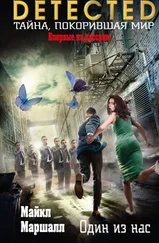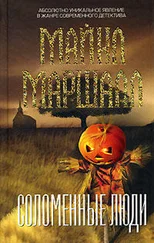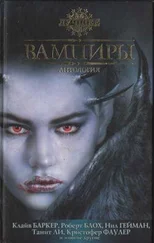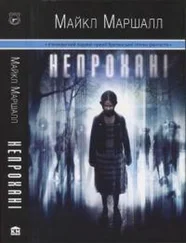Майкл Смит - The Lonely Dead
Здесь есть возможность читать онлайн «Майкл Смит - The Lonely Dead» весь текст электронной книги совершенно бесплатно (целиком полную версию без сокращений). В некоторых случаях можно слушать аудио, скачать через торрент в формате fb2 и присутствует краткое содержание. Год выпуска: 2004, Жанр: Альтернативная история, Детективная фантастика, Социально-психологическая фантастика, на английском языке. Описание произведения, (предисловие) а так же отзывы посетителей доступны на портале библиотеки ЛибКат.
- Название:The Lonely Dead
- Автор:
- Жанр:
- Год:2004
- ISBN:нет данных
- Рейтинг книги:4 / 5. Голосов: 1
-
Избранное:Добавить в избранное
- Отзывы:
-
Ваша оценка:
- 80
- 1
- 2
- 3
- 4
- 5
The Lonely Dead: краткое содержание, описание и аннотация
Предлагаем к чтению аннотацию, описание, краткое содержание или предисловие (зависит от того, что написал сам автор книги «The Lonely Dead»). Если вы не нашли необходимую информацию о книге — напишите в комментариях, мы постараемся отыскать её.
The Lonely Dead — читать онлайн бесплатно полную книгу (весь текст) целиком
Ниже представлен текст книги, разбитый по страницам. Система сохранения места последней прочитанной страницы, позволяет с удобством читать онлайн бесплатно книгу «The Lonely Dead», без необходимости каждый раз заново искать на чём Вы остановились. Поставьте закладку, и сможете в любой момент перейти на страницу, на которой закончили чтение.
Интервал:
Закладка:
'There may be, yes. That's what I'm saying. Unless we…'
'No. I mean have there been any before this? If this is the end, as you think, where is the beginning? What got him to here? What's this guy spiralling out from?'
'People are on it. LAPD are cross-checking as we speak.'
'And we still have no idea who she is.'
'No purse, no possessions apart from old pjs, dickhead behind the desk says he never saw her before she was dead. A photo will be prepared once they've cleaned her up a little: people will be on the street with it by the end of the afternoon. You know what that thing in her face was?'
Nina shook her head, a coppery taste in her own mouth. She had seen many dead bodies, some of them in states around which she'd had to build a wall in her head, so she didn't come upon the memory unexpectedly. But there was something about the ones where they did things to the victims' mouths. Sexual mutilation you almost took for granted. The mangling of a public part of the body, like the eyes or mouth or hands, somehow seemed a more social desecration. Sexual was private, a personal assault; public said LOOK, UNIVERSE, AT WHAT I HAVE DONE. It was outward-directed, some statement designed to change the world. Or so it seemed to her.
'A hard disk,' Monroe said. 'A small one, like in a laptop. One of the techs recognized it before it was even out of her head.'
'No prints?'
He shook his head. 'Clean. But someone in a lab is finding what else it can give us. There's a serial number, for a start. It came from somewhere, was bought somewhere. And there may be something left on it, of course. We'll know tonight.'
He caught the expression on Nina's face this time. 'He left it there for a reason, Nina. Let's get back to work.'
He stood up, thumb already dialling another number on his cell. Thunk, thunk, thunk. She wouldn't want to be Charles Monroe's phone, Nina thought. That was a job for a phone with tough abs.
She drained the rest of her coffee, aware of his eyes on her, critical. 'What, Charles?'
'How's your arm holding out?'
'Fine,' she said, irritably. He wasn't asking about her arm. He was reminding her of unfinished business and of why their professional relationship had taken its second turn for the worse. She got the message. 'Good as new.'
He looked like he was going to say something else but then got an answer on his cell, and turned and strode away, already in mid-flow. Someone was learning just what a damn fine SAC Monroe was; how in control, how just right on top of things.
As she followed him, Nina checked her own phone for something like the twentieth time. She saw there was a text message from Zandt, at last, and quickly called it up.
It said: I'M IN FLORIDA.
'Oh for fuck's sake,' she muttered, stuffed the phone back in her bag, and walked back out into the heat.
5
I checked into the Armada on Powell, in San Francisco downtown not far from Union Square. It was appealingly expensive and had a guy dressed as a Spanish soldier standing on the pavement outside. Passing tourists were taking photographs of each other with him, presumably so that back home they could tell their friends that here they were, with a guy in a costume, outside a hotel they weren't staying in. By the time I was settled it was too late to do the big thing on my agenda, so I went for a walk instead. As I walked I thought about what I knew, which boiled down to this: I had been wrong about just about everything to do with my life. I had believed I'd been born to Don and Beth Hopkins in Northern California, where they had been living well-tempered lives of average tedium. They mowed the yard and kept the car clean and they bought enough material goods to keep the gods of commerce smiling upon them. My father built up a realty business and, after I'd left home, this led to them moving to Dyersburg. He had continued to enjoy some success as a broker of luxury houses until a car crash had taken both of their lives. But on the day after their funeral, when I'd gone to their house to try to understand what I was supposed to do about it, I'd found a message. It had been hidden in such a way as to draw the attention only of someone who knew my father very well.
The message had said, simply, that they weren't dead.
This is the news everyone wants to hear — everyone, that is, whose relationship to their parents is marred merely by distance — and it was enough to make me spend the afternoon searching their house. I found the videotape my father had sealed into a VCR in his study, and this ultimately led to my discovering just how wrong I had been about my life. Wrong — or deliberately misled.
I had thought I was an only child. A section in the video showed me with a brother of the same age, a brother deliberately abandoned on a city street, somewhere back in the late 1960s.
I had thought my parents' death had been an accident. They weren't my parents and it wasn't. They had been murdered by the group my natural father had belonged to, thirty-five years earlier. This group was called the Straw Men, and believed themselves the only portion of humanity uninfected by a virus promoting social conscience above the cold-hearted individualism they believed inherent to our species. Whether they genuinely thought this, or it was just a convenient cover for acts of violence and depravity, was not clear. What was clear was that the group was wealthy and well connected. It was also evident that their point man, a person who called himself the Upright Man but could more accurately be designated as Paul, my lost brother, was about as dangerous an individual as could be imagined. The night before Bobby Nygard died we watched a government tape together, a compilation of the world's atrocities over the previous two decades. Shootings, explosions, mass killings. We saw the Upright Man in the background of a number of these events, mutely claiming the glory. In addition he had been acting as a procurer for the occupants of The Halls, a group of men — and, for all I knew, women — involved in considered and repeated acts of serial murder.
The first steps had been easy. I did my initial research a hundred miles down the road from Relent, sitting in a wired coffee bar with a laptop. I hated the idea that someone might think I was writing a novel, and kept glaring at people who smiled encouragingly at me, but I needed the net access. What I had to do first was confirm the city in which my sibling had been abandoned. Paul had sent me a message in which he claimed he had been left in San Francisco, but I was not inclined to believe anything he said without evidence. I had nothing else to go on except the short section at the end of the videotape my father had left me, which I had converted to a DVD.
The last section was in three parts. The first showed a train journey. There was no locating information — but I knew my father well enough to be confident he would not have included it just for background colour. So my guess was the first section was to signal a journey had been undertaken — and that it was far enough from our house to make sense by rail, but not far enough to take a plane. This gave me a choice of maybe thirty or forty cities and towns in or around Northern California or Oregon.
The tape cut then to a wide street in a downtown area. The camera followed my mother as she walked down a sidewalk, hands down and out of sight: holding, as the final section would make clear, the hands of two young boys. There was not much else to see except passing examples of the fashions of the late 1960s, in the shapes of suits and cars; and understated store fronts of the kind that made you wonder what made anyone buy anything in those days. Nothing remarkable, except…
I froze the image. Over on the right side of the road was a small department store, opposite a grassy square. I could just about make out a name — Hannington's.
Читать дальшеИнтервал:
Закладка:
Похожие книги на «The Lonely Dead»
Представляем Вашему вниманию похожие книги на «The Lonely Dead» списком для выбора. Мы отобрали схожую по названию и смыслу литературу в надежде предоставить читателям больше вариантов отыскать новые, интересные, ещё непрочитанные произведения.
Обсуждение, отзывы о книге «The Lonely Dead» и просто собственные мнения читателей. Оставьте ваши комментарии, напишите, что Вы думаете о произведении, его смысле или главных героях. Укажите что конкретно понравилось, а что нет, и почему Вы так считаете.








![Майкл Смит - Ханна Грин и ее невыносимо обыденное существование [litres]](/books/408571/majkl-smit-hanna-grin-i-ee-nevynosimo-obydennoe-su-thumb.webp)
![Майкл Смит - Те, кто приходят из темноты [litres]](/books/412959/majkl-smit-te-kto-prihodyat-iz-temnoty-litres-thumb.webp)


